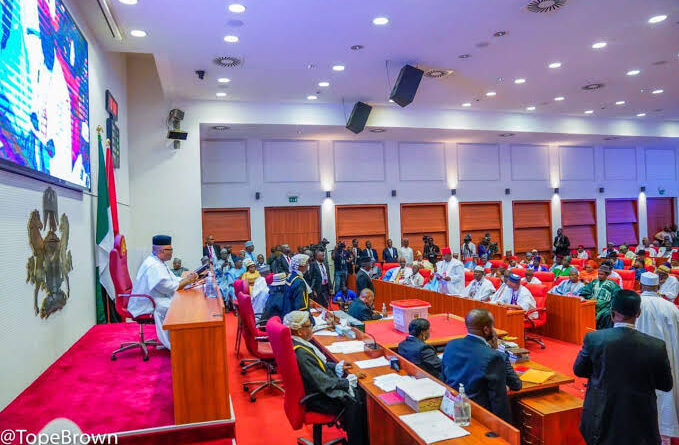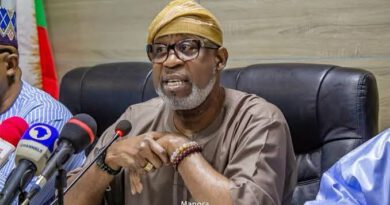Senate Passes Minimum Wage Bill In Record Time
The Senate has successfully passed the new minimum wage bill through its third reading, marking a significant milestone in the legislative process.
In a swift sequence of events on Tuesday, the bill underwent its first reading, which was prompted by President Bola Tinubu’s request, followed by its second reading, which entailed a debate on the general principles of the bill.
The third reading, which took place within the same hour, solidified the bill’s progress.
The legislation aims to increase the country’s minimum wage from N30,000 to N70,000, a significant adjustment intended to benefit Nigerian workers. During the debate on the bill, Opeyemi Bamidele, the Senate’s majority leader, revealed that the agreed-upon figure of N70,000 was the result of thorough negotiations among all parties involved.
This consensus underscores the collaborative effort to ensure a fair and reasonable minimum wage for the country’s workforce.
“This is part of the federal government’s short term measure to mitigate the situation in the country,” Bamidele said.
On his part, Tahir Monguno, chief whip, said there is a need to review the minimum wage in line with economic realities.
“The review of the minimum wage used to be after every five years. It is now every three years,” Monguno said.
“There is a need to review it and bring it in tandem with the realities of society.”
Thereafter, the senate dissolved into the “committee of the whole” to approve clauses of the bill.
Last week, Tinubu asked the national assembly to increase the 2024 appropriation Act by N6.2 trillion.
The president said N3.2 trillion is for infrastructure projects and N3 trillion for recurrent expenditure.
Defending the president’s request before the house of representatives committee on appropriations on Monday, Atiku Bagudu, minister of budget and economic planning, said the N3 trillion is intended to cover the new national minimum wage.




